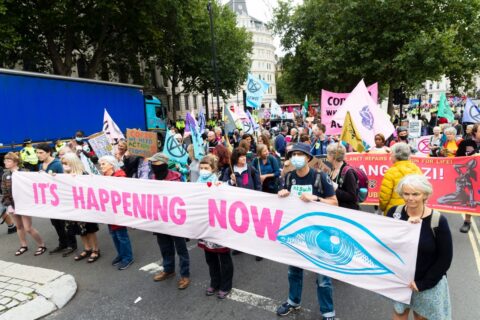Government’s Role in Economic Recovery: Post-Crisis Strategies
In the aftermath of economic crises, such as the COVID-19 pandemic, government interventions play a crucial role in steering economies towards recovery. This article delves into the strategies and outcomes of government actions in the context of recent economic challenges, offering insights relevant to average-income individuals.
U.S. Economic Recovery: A Model of Government Intervention The United States’ economic recovery post-COVID-19 serves as a prominent example of effective government intervention. Key highlights include:
- The American Rescue Plan significantly accelerated recovery, with the U.S. outperforming other advanced economies in regaining its pre-pandemic economic size and employment levels.
- Despite initial inflation spikes, the U.S. has managed to lower inflation rates more effectively than many European countries.
Challenges in the Global Economic Landscape The global economy faces multiple challenges impacting recovery prospects:
- Persistent inflation, rising interest rates, and the looming threat of climate change are major concerns.
- Developing countries struggle with tightening credit conditions and increasing costs of external financing, hindering growth.
- Global trade remains subdued, with growth rates falling short of pre-pandemic levels.
Strategic Approaches in Developing Countries To foster economic recovery, developing countries are advised to adopt the following strategies:
- Re-channeling Unused Special Drawing Rights: Redirecting financial resources from developed to developing nations can alleviate funding shortages.
- Expanding State-Contingent Debt Instruments: These instruments can enhance liquidity and debt sustainability during crises.
- Establishing a Multilateral Credit Rating Agency: Aiming for balanced and sustainable credit assessments.
- Leveraging South-South Learning from Development Banks: Utilizing their financial resources and expertise for effective policy responses.
- Implementing Capital Flow Management: Managing capital inflows to support productive development and mitigate deindustrialization risks.
Implications for Average Income Individuals Understanding the government’s role in economic recovery is crucial for average-income individuals, as it affects employment opportunities, inflation, and overall economic stability. Keeping abreast of these developments helps in making informed financial decisions.
In summary, government actions play a pivotal role in economic recovery post-crisis. The strategies employed vary based on the country’s economic status and the nature of the crisis. For average-income individuals, comprehending these dynamics is essential for navigating the economic landscape effectively.








